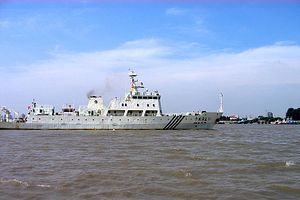The disputes over the South China Sea have already become a focal point of diplomacy in this region. Any possible escalation of these tensions into conflict could have a major impact on the region’s security and economic development. Given the situation, it is extremely important to conduct research on this issue. The rising tensions in the South China Sea have warranted a good deal of research, but this research so far has some major limitations.
First, even though the research conducted by scholars from the claimant countries comes from a direct source of information, it is often difficult to avoid preconceptions due to the authors’ affiliation and position. Second, as much of the research is focused only on the positions and strategies of one country, there is a significant void of comprehensive research focused on the interactions of the participant countries. More importantly, much of the research tends to focus on the actual disputes and geopolitical analysis; subsequently, there have been very few developed proposals providing concrete plans and roadmaps for peaceful resolutions.
There are several reasons why concrete proposals for conflict resolution are important. First, while the concrete proposals may not solve the issues outright, they could stimulate creative thinking and spur other constructive proposals to resolve some of the conflicts. Second, most international conflicts, including the South China Sea disputes, are complicated. Concrete proposals could help to break down a complicated issue into several sub-issues and provide a road map for resolutions over time, rather than struggling to tackle all the issues simultaneously. Third, concrete proposals could provide the preliminary agendas and plans needed to pave the way for formal negotiations for the involved parties of an international conflict to arrive at a finalized solution.
As an important step of dispute resolution, there should be more research focused on creating concrete proposals to bring to the table. For example, in 1978 when Jimmy Carter mediated the Camp David Negotiation between Egypt and Israel, the concrete proposal regarding Sinai (which required Israel to return Sinai to Egypt on the condition that it remain demilitarized) played a critical role for reaching the final agreement of the Camp David Accords. Many international disputes were solved based on concrete proposals, such as the Dayton accords and the Good Friday Accords, among others. If the countries involved want to solve the South China Sea disputes, concrete proposals will be a very important precondition for success.
The South China Sea disputes involve six claimants that bring their own historic issues and domestic politics to the negotiations, leaving no easy solution. Given the nature and complexity of the various claims to the islands and concerns about the rising nationalism inside the claimant countries, no purely legal process is likely to be sufficient to achieve a settlement. It is also nearly impossible to reach an agreement on South China Sea demarcation. Under this situation, it becomes more important to have scholars from both the claimants as well as outside sources conduct research which aims to provide concrete suggestions toward the resolution and management of this conflict.
For example, the joint development of South China Sea resources has been a suggestion for solving the South China Sea disputes for a long time. The sea itself cannot be easily divided or shared, but the resources within its can be. China has included joint development as one of its major principles for the South China Sea disputes since the 1980s, but neither China nor any other state has ever provided detailed concrete plans for how to conduct joint development.
The future prospect of a peaceful South China Sea will be dependent on not only the “good behavior” of the political leaders, but also whether scholars could produce innovative ideas and concrete proposals for solutions.

































